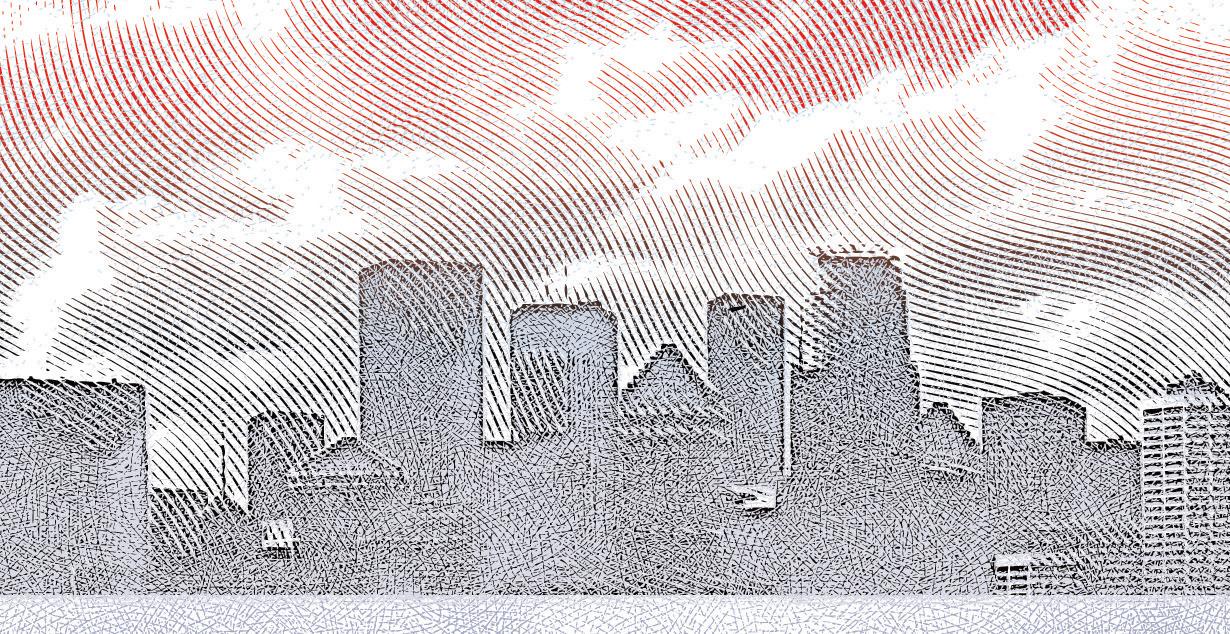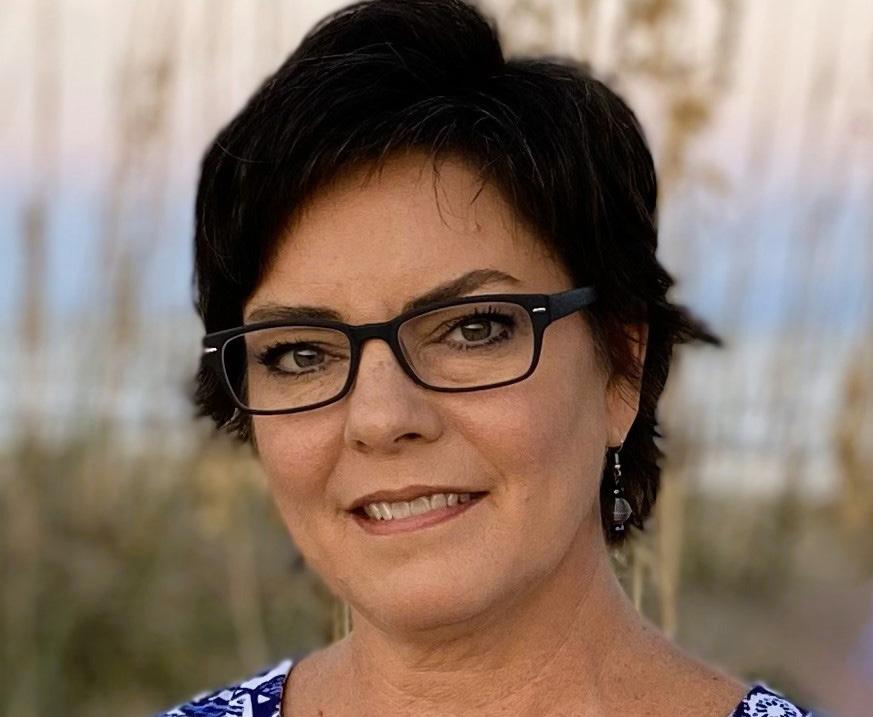
6 minute read
What Burnout Really Looks Like and What You Can Do About It
What Burnout Really Looks Like and What You Can Do About It
BY LEE NELSON
Job burnout is not just about having a bad week or feeling tired day to day.
“Burnout is a sense of chronic cynicism or frustration,” says Paula Davis, founder of the Stress & Resilience Institute, Milwaukee. She also is the author of “Beating Burnout at Work.”
For real estate professionals, burnout can show up in thoughts like: “My clients are annoying me. Do I really have to jump in and help them again?” she added. “Yes, that’s your job, but you start to feel that annoyance with the people you are specifically called to help.”
Another sign of burnout is a growing sense of apathy — the “who cares” or “why bother” mindset. For instance, an agent might think, “The market is what it is. I can’t change anything.” That’s disengagement from your work.
For Carla Reynolds, burnout feels like there is always someone waiting for you to do something — whether it’s a client, colleague, family member or friend.
“I would guess that every agent who was actively helping buyers and sellers during the COVID boom had some experience with burnout,” states Reynolds, owner and broker-in-charge of NC 12 Realty in Buxton, NC. “We had so much interest from buyers who wanted a place at the beach when we were not required in office, plus so little inventory to sell them. It was hard to keep up.”
What Burnout Is — And What it Feels Like
In 2019, the World Health Organization (WHO) recognized burnout as an occupational phenomenon. While not classified as a medical condition, the syndrome is listed in the WHO’s handbook of medical diagnoses. It is characterized by three dimensions:
Feelings of exhaustion
Increased mental distance from your job or feelings of cynicism and negativity toward it
Reduced professional effectiveness



I would guess that every agent who was actively helping buyers and sellers during the COVID boom had some experience with burnout. – Carla Reynolds
That same year, Brittany Wrenn founded Beyond the Sale, a wellness company inspired by her own experience with burnout as a real estate professional.
“I had been at my wits’ end in sales — constantly working, not properly hydrating or getting the right nutrition. Sometimes, I was going all day without eating,” said Wrenn, vice president of agent development with Coldwell Banker Realty in Oak Brook, Ill. “I felt like I was in a hamster wheel and couldn’t get off.”
After taking two weeks off to decompress in the U.S. Virgin Islands, she realized that many agents must be experiencing the same thing. While sitting in the sun, she began designing a company focused on supporting agents through burnout prevention: time-blocking strategies, nutrition, mindfulness and recognizing early warning signs.
She booked her first workshop at a National Association of REALTORS® conference and has since presented continuing education sessions nationwide. She also contributes to NAR publications. NC REALTORS® recently hosted her for a Mobile Mondays webinar.
“Everyone needs something different. Some need to move their body more. Some need to slow down. Sometimes, you just need to take five minutes to stretch or sit in silence,” she added.
Wrenn sees burnout on both ends of the spectrum: agents who are overwhelmed with too much business, and those struggling with a lack of it.
“Some are so busy they don’t know how to do the regular day-to-day stuff. They end up neglecting those tasks — and neglecting their lives outside of work, too,” she said. “On the other end, they’re burning out from the stress of not
having a steady flow of business. It’s a constant mental spiral — wondering how they’ll pay their bills.”
Given today’s low inventory, high interest rates and increased interest in relocating to North Carolina, that stress adds up fast.
Wrenn’s tips include:
Write down your symptoms. If you’re sleeping too much (or not at all), track it. “It’s important to focus on this just like an agent would with a business plan,” she said.
Build burnout prevention into your business plan. That includes regular time away from work for hobbies, family, passions — or just rest.
Lean on your support system. If you’re struggling, talk to a friend or loved one.
Evaluate your nutrition and fitness. “I do yoga and intense workouts, and I removed sugar and too much coffee. They don’t operate well in my body if I have too much.”
Burnout is a sense of chronic cynicism or frustration, – Paula Davis
Some are so busy they don’t know how to do the regular day-today stuff. They end up neglecting those tasks — and neglecting their lives outside of work, too,” she said. “On the other end, they’re burning out from the stress of not having a steady flow of business. It’s a constant mental spiral — wondering how they’ll pay their bills. – Brittany Wrenn
Why it Matters
The Mayo Clinic warns that untreated burnout can lead to serious health problems, including fatigue, substance use, high blood pressure, Type 2 diabetes, heart disease and vulnerability to illness. Emotionally, you may feel depleted, irritable and unable to cope.
Davis, who previously worked as a commercial real estate attorney, remembers how burnout slowly took hold.
“I’m rarely a procrastinator. I began going to work later. As a lawyer, I didn’t have a start time. I started out 20 minutes later, then 30 minutes. I pushed the boundaries,” she said. She noticed she was getting sick more often — more colds, headaches and chronic pain.
“I would wake up every day not wanting to go to work,” she said. “That’s how stress impacts you — physically. I would get stomachaches, then headaches. Eventually, it happened every time I closed a deal.” Even minor hiccups in deals felt catastrophic.
“I wasn’t having any fun — not at parties, not with anything,” Davis said. “There should be some sort of happiness, joy and positive emotions sprinkled into what you do on some days. That used to be present, but it was eroding for me.”
Reynolds agrees that burnout is a real concern.
“Real estate professionals don’t work regular business hours. We work when our clients need us — nights, weekends and holidays,” she said.
After 19 years as an agent and 33 years as an appraiser, she says it’s easy to see the signs of burnout building.
“We have a habit of giving 100 percent to meeting the needs of our clients and trying to please potential ones,” Reynolds said. “When you notice frustration building in an agent or a sense of overwhelm, a gentle reminder that you can’t please everyone all the time never hurts.”


